About 280 kilometres away from Nairobi, there is a town called Meru. Meru is situated about 8 km north of the equator, on the northeast slopes of Mount Kenya, in an area of mixed forest and clearings, small towns, villages and rural farms. Although not as densely populated, Meru has a community full of inspiring local businesses. This is where Muchai Gateru’s story begins. Muchai is the Director of Navari Limited in Kenya. Frappe’s first Silver Partner in the region. He has a decade-long career in implementing countless successful projects with ERPNext and Microsoft Dynamics. But the more remarkable version of his story lies in the unassuming path that led him here.
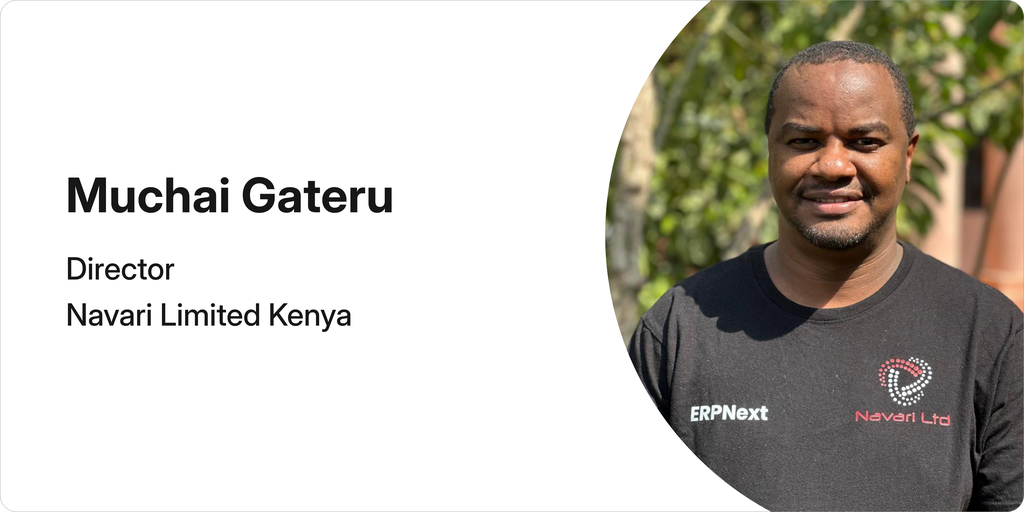
Muchai's childhood was humble, with people around him leaving a lasting mark. He looked up to his parents the most. His mother, a farmer and trader, taught him that hard work is irreplaceable. His father, a mechanic by profession, was the one who inspired him to be an engineer. Surrounded by seasoned traders, Muchai also learnt an uncommon truth early on. More wasn’t always better. Knowing how much you can take on and doing that bit well matters far more than growing blindly. These influences were tied to his ambitions early.
“I grew up in a place where everyone was doing something of their own. I wanted to follow the same path too; it became a goal for me early on to build something that uplifted a community.”
There were many things to figure out first. Muchai didn’t know what business he wanted to run. And until he began his bachelor’s degree, he wasn’t even sure what he wanted to study. Muchai moved to Nairobi. In the commercial capital, he was exposed to big corporations and businesses, unlike the ones at home. He decided to graduate with a BSc in Information Technology. Nairobi became a plethora of opportunities, both academically and for his career ahead. This introduction to software and the sense of enterprise-level business empowered him to explore his urge to build and fix things, akin to his father.
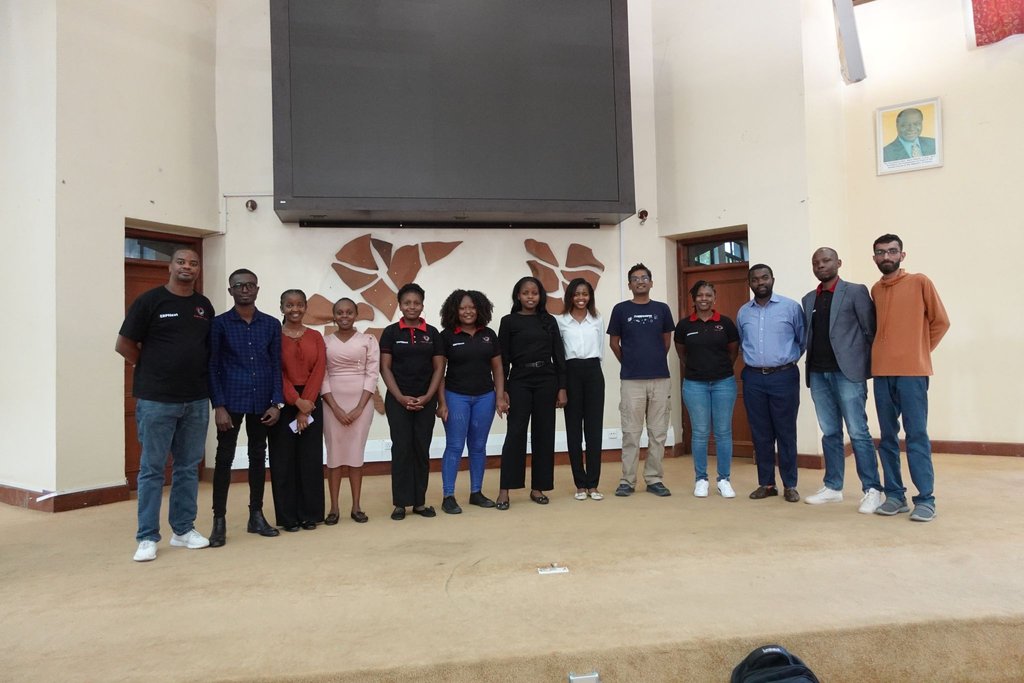 Frappe Local Nairobi 2024
Frappe Local Nairobi 2024The push towards software development came right after Muchai’s graduation in 2008, when he joined Netcom as a developer. Working with PL/SQL, the highly database-driven work not only gave him technical grounding but also an appreciation for HR & Payroll systems. In the coming years, he moved on to working with Microsoft Dynamics (Business Central) as a technical developer and consultant. In 2010, he built a custom payroll solution, his first big project on Microsoft Dynamics Nav. Muchai gained confidence in his skills and, in this fashion, moved a few jobs. In November 2015, Navari was founded, with an intention of offering Microsoft Dynamics implementation and customisation services.
Although, operations didn’t start immediately. Between 2016 to mid 2018, Muchai worked as a freelance developer. The company hadn’t taken off as expected, but Muchai was setting himself up for an independent career. With this flexibility, Muchai began exploring further. Having heard about open source in college, he found ERPNext & Frappe Framework. He didn’t intend to build a business around it, but his path would lead there eventually.
“Along with starting Navari, I also finished my Master’s in Computer Science in the same year. It wasn’t about having the perfect plan, it was about starting.”
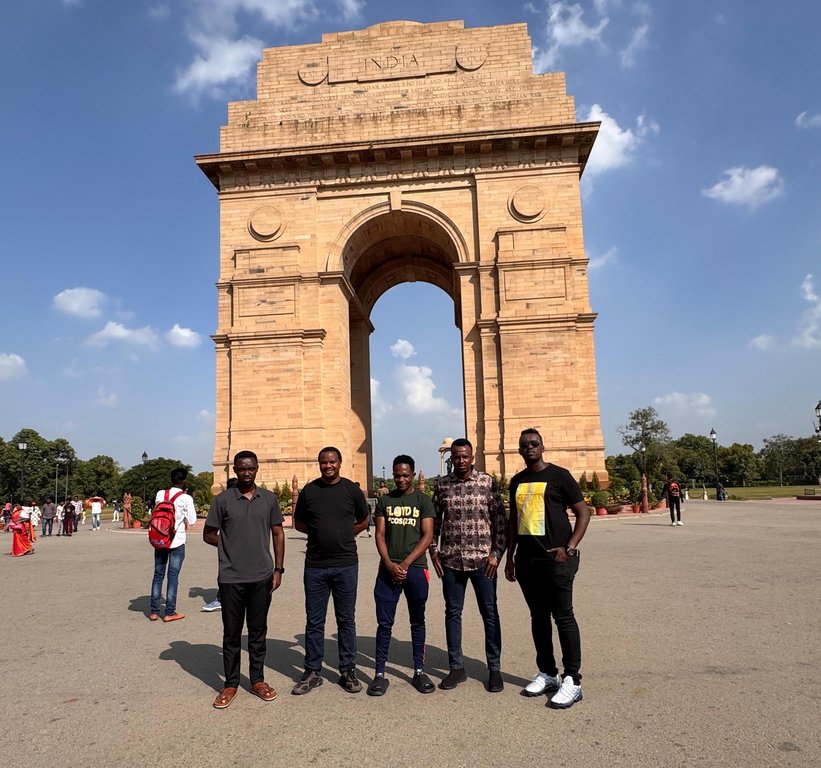 Navari with a customer at India Gate
Navari with a customer at India GateA little later in 2018, while engaged in a Dynamics Nav project for a hospital in Nairobi, some hard realities became clear. In a critical industry like healthcare, it was important that nothing gets missed. But when Muchai saw huge integration challenges and difficulty coordinating separate vendors for each module, something clicked. There was a need for a single-platform, end-to-end ERP solution. This need brought him back to ERPNext & Frappe Framework. So from there onwards, he adopted ERPNext entirely.
“It felt like somewhat of a risk to change our strategy and system. But I also wanted to do what made sense to me at that time. It was where the market was going.”
The product was right, but the switch wasn’t simple. At this juncture, the projects were far and wide. In the beginning, the company survived paycheck to paycheck. The endless support from his wife and family fuelled his determination to keep finding more customers. The team didn’t get to work on a decent-sized project until 2018, for a water & sanitation company.
“I was in a constant fear of failure. Even though I had long established that I wanted to run a business, it wasn’t easy to get going. We had no profit and no backup plan.”
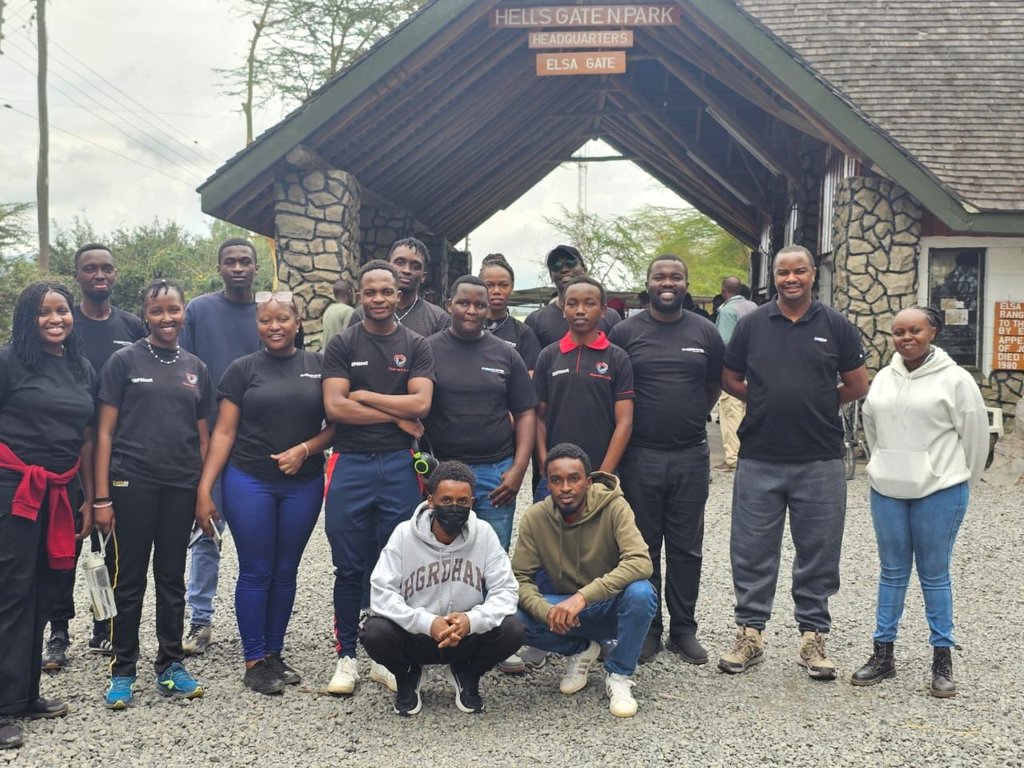 Navari team building at Hells Gate
Navari team building at Hells GateOnce Navari’s team had a few implementations under their belt, business began to pick up. Their quality-first approach had worked. Old Microsoft Dynamics clients came looking for something more affordable and comprehensive. Their team expanded too. Currently, the team of 15 is a mix of consultants and developers. Other processes, like accounting, sales and marketing, are handled internally. Uniquely, the majority of the team is in their 20s and were hired long after the company was founded. Muchai conducts a rigorous hiring and training process. This is to ensure that team members are ready to take accountability and work independent of constant supervision.
“I am a nurturer by nature. It is a result of the community I have grown up in. I want everyone who joins the team to succeed, whether they end up staying with us or not.”
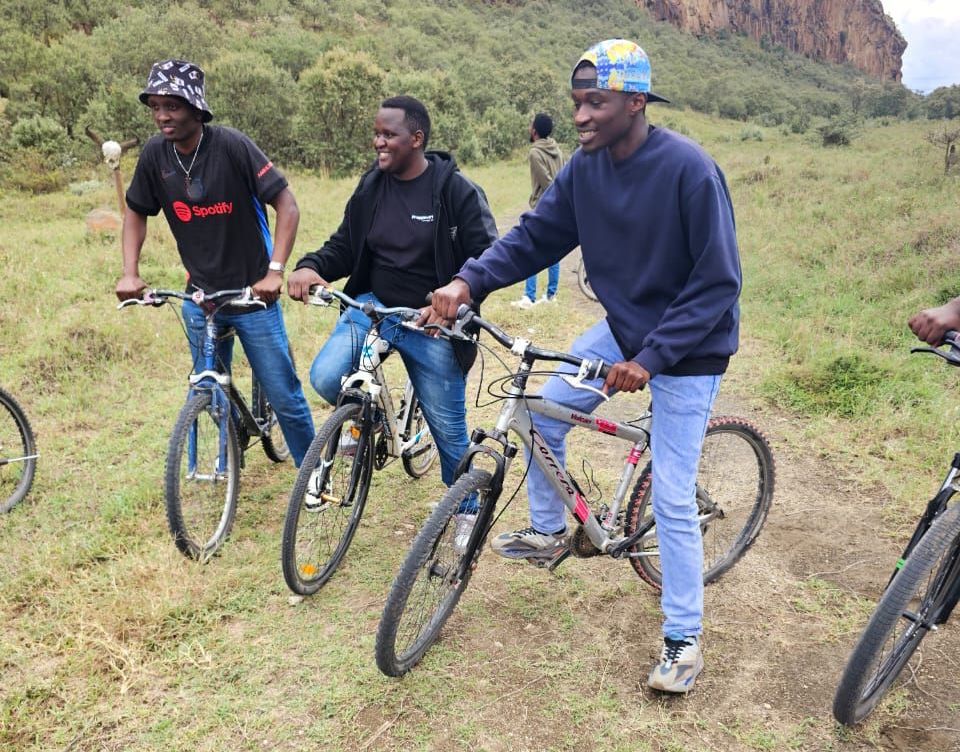 Navari team building at Hells Gate
Navari team building at Hells GateAnother thing that Muchai brought to Navari from his early life was the responsibility of owning a business. Every member of Navari’s team carries a deep sense of ownership towards a client’s success. This is what makes them special. They don’t overreach and operate based on their strengths. Being a remote team, they also value direct communication. Spending quality time at least four times a year to unwind and catch up in person.
“We know that we won’t do justice to projects bigger than our capacity, so we don’t take them up. We have passed on many big projects. It feels like a lost opportunity, but we remind ourselves that the important thing is to do it well, not big.”
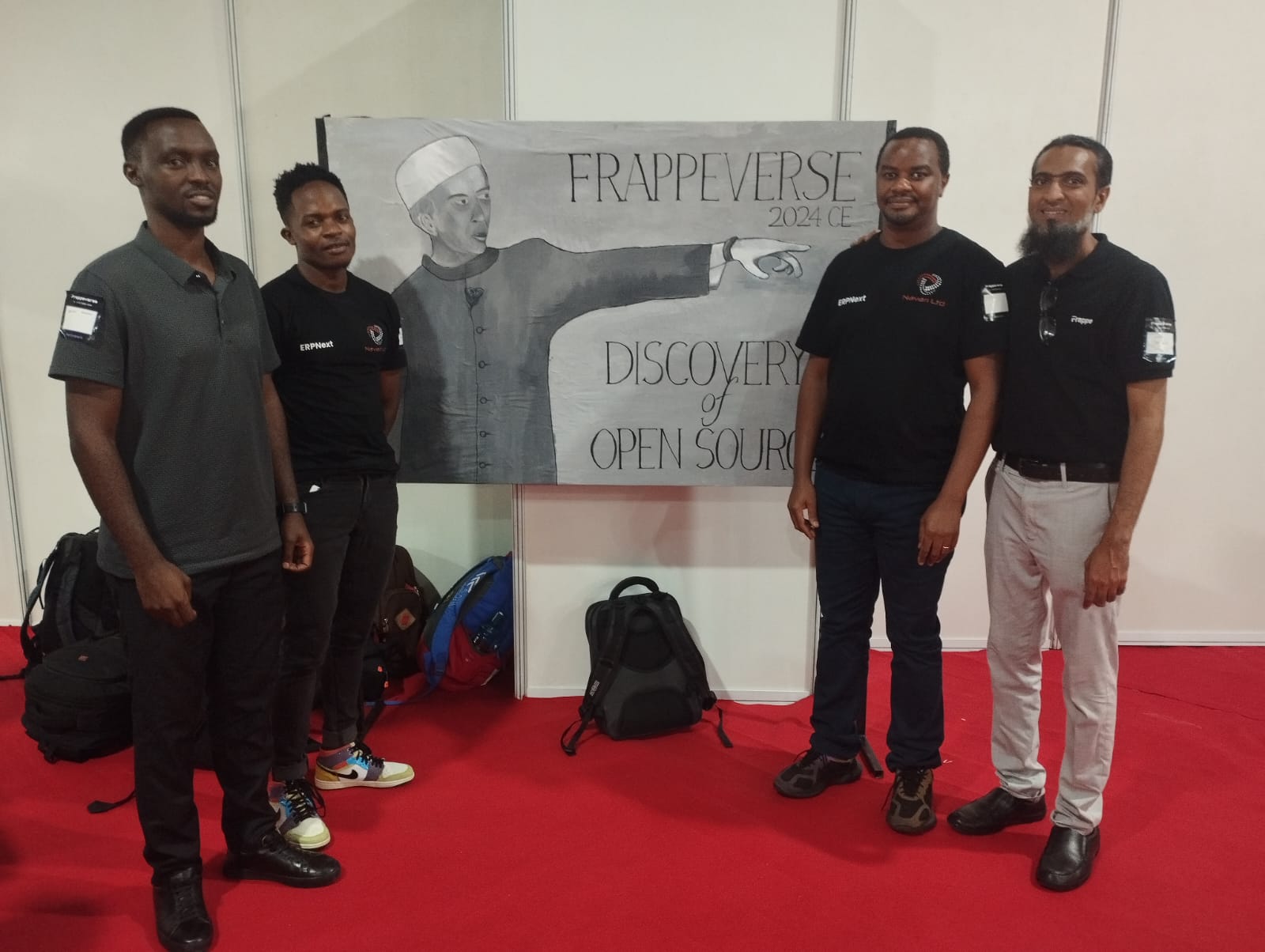 Navari at Frappeverse India 2024
Navari at Frappeverse India 2024A bigger part of running a sustainable business is maintaining its community. Muchai and the Navari team pioneer community events, webinars and meetups such as Frappe Local Nairobi & Frappeverse Africa. The company also contributes products to the regional community. Some notable ones include a tax compliance app and a two-way M-Pesa payment integration. The team is a strong advocate for product awareness and partner quality, having positioned themselves perfectly in East and South Africa.
“If we’re building, why not build for the community. We want to be profitable, but we’re not strict on revenue. We want to do good work and rise with the ecosystem. The money will follow.”
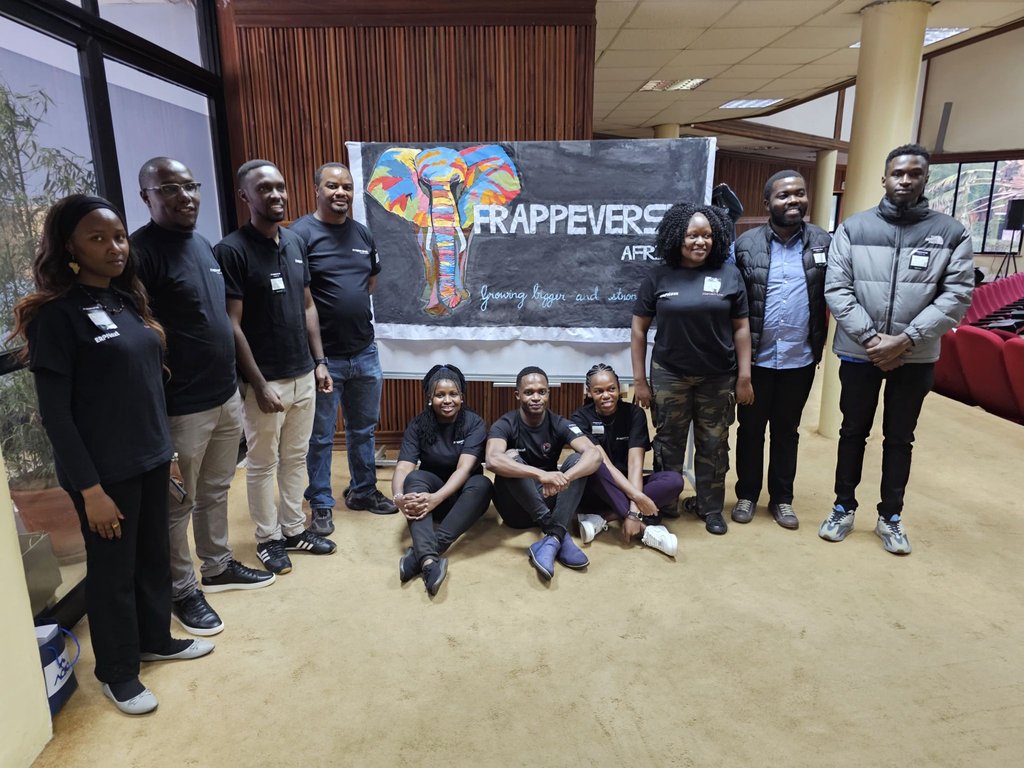 Frappeverse Nairobi 2025
Frappeverse Nairobi 2025From Meru’s resourceful values to leading over 95 ERPNext projects across East and South Africa, Muchai’s path has been guided by the same principles he grew up with. To work hard, do what you take on well, and bring others along with you. Navari’s success hasn’t come from chasing every opportunity, but from choosing the right ones and delivering on them fully. Speed and scale often take the spotlight. But Navari’s deliberate approach may be exactly what keeps them ahead.
What makes Frappe products worth it?
The value they provide by addressing customer needs, their cost effective products, and best of all, that it's open source.
Why should customers choose Navari?
Proven track record and reliable customer service when it comes to ERP (specifically Frappe products) implementations and customization.
One lesson you’d want to share with the world
There's room and enough for us all.
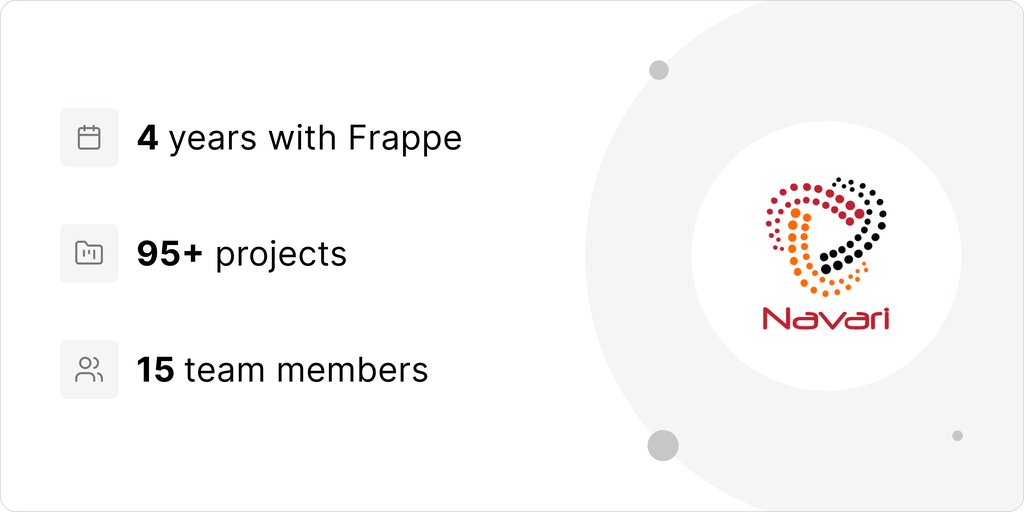

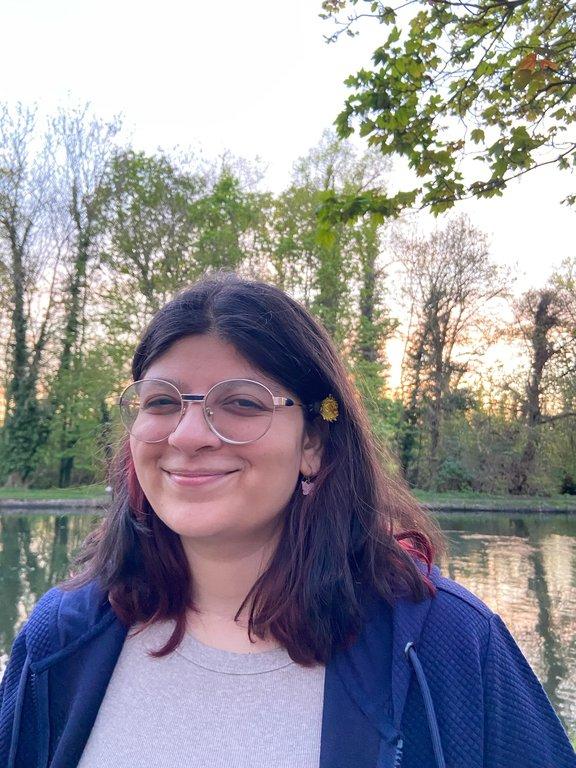


·
Inspiring! Looking for a chance to get connected to Muchai whenever there is an opportunity at hand in West Africa. I believe in an Open Digital Africa Ecosystem built around Frappe!
·
Truly a nurturer! Code Name: The Godfather. Thank you Foram for a spotlight on our Star, for it is easy to forget where a lot of our guiding light comes from. We are so grateful to have you Muchai.
·
Great work Muchai. Such a great person and an inspiration to many. Keep up the good work you are doing.
·
Muchai is a remarkable human being, am inspired.
·
"There's room and enough for us all.". Loved this! @Muchai - Thanks for being a community evangelist. It is inspiring how you've helped other partners in the ecosystem grow by playing the positive sum game.
·
Happy to have worked with Muchai. A man who taught me the way to design a system better. I had a tremendous learning curve at Navari.
·
Truly inspiring
·
Succinctly told. Thank you Foram.
·
Inspiring